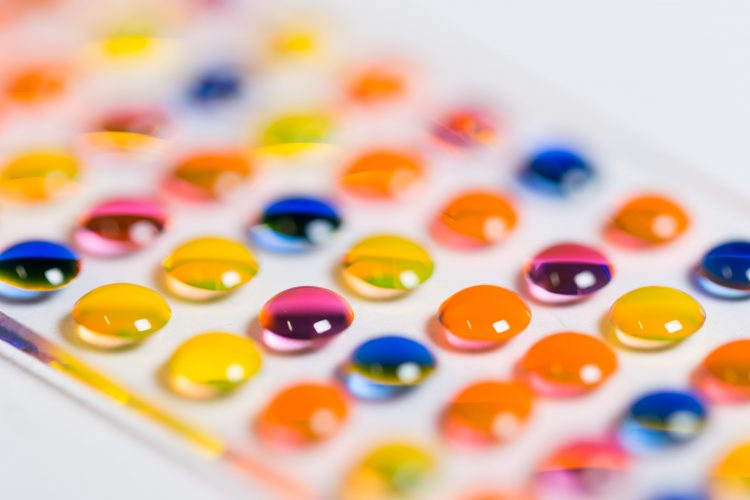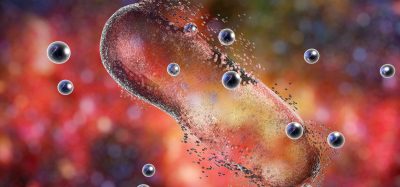Chemical synthesis and biological screening combined on chip
Posted: 16 July 2019 | Victoria Rees (Drug Target Review) | No comments yet
Researchers have developed a chip which facilitates and accelerates active substance production, characterisation and biological effectiveness.


Array of microdroplets with various reactants on the chemBIOS chip-based synthesis platform (credit: Maximilian Benz, KIT).
Researchers have created a chip which combines the production, characterisation and screening for biological effectiveness of new active substances. The team behind the new technology say it will accelerate drug development processes and its miniaturisation will also reduce costs significantly.
The researchers, from the Karlsruhe Institute of Technology (KIT) have created the chemBIOS platform which is compatible with both organic solvents for synthesis and aqueous solutions for biological screenings.
“We have developed a platform that combines synthesis of compound libraries with biological high-throughput screening on a single chip,” says Maximilian Benz of KIT’s Institute of Toxicology and Genetics (ITG).
Reduce preclinical failures with smarter off-target profiling
24 September 2025 | 15:00PM BST | FREE Webinar
Join this webinar to hear from Dr Emilie Desfosses as she shares insights into how in vitro and in silico methods can support more informed, human-relevant safety decisions -especially as ethical and regulatory changes continue to reshape preclinical research.
What you’ll learn:
- Approaches for prioritizing follow-up studies and refining risk mitigation strategies
- How to interpret hit profiles from binding and functional assays
- Strategies for identifying organ systems at risk based on target activity modulation
- How to use visualization tools to assess safety margins and compare compound profiles
Register Now – It’s Free!
The chemBIOS platform is used to perform 75 parallel three-component reactions to synthesise a library of lipids. This is followed by characterisation using mass spectrometry, on-chip formation of lipoplexes and biological cell screening.
“The entire process from library synthesis to cell screening takes only three days and about 1ml of total solution, demonstrating the potential of the chemBIOS technology to increase efficiency and accelerate screenings and drug development,” Benz points out.
Drug development can often take up to 20 years to come to approval and cost between two and four billion dollars. The researchers believe that combining chemical synthesis with biological screening is the most efficient way to develop drugs.
The results were published in Nature Communications.
Related topics
Drug Development, Hit-to-Lead, Research & Development, Screening
Related organisations
Karlsruhe Institute of Technology (KIT), KIT's Institute of Toxicology and Genetics, Nature Communications
Related people
Maximilian Benz








